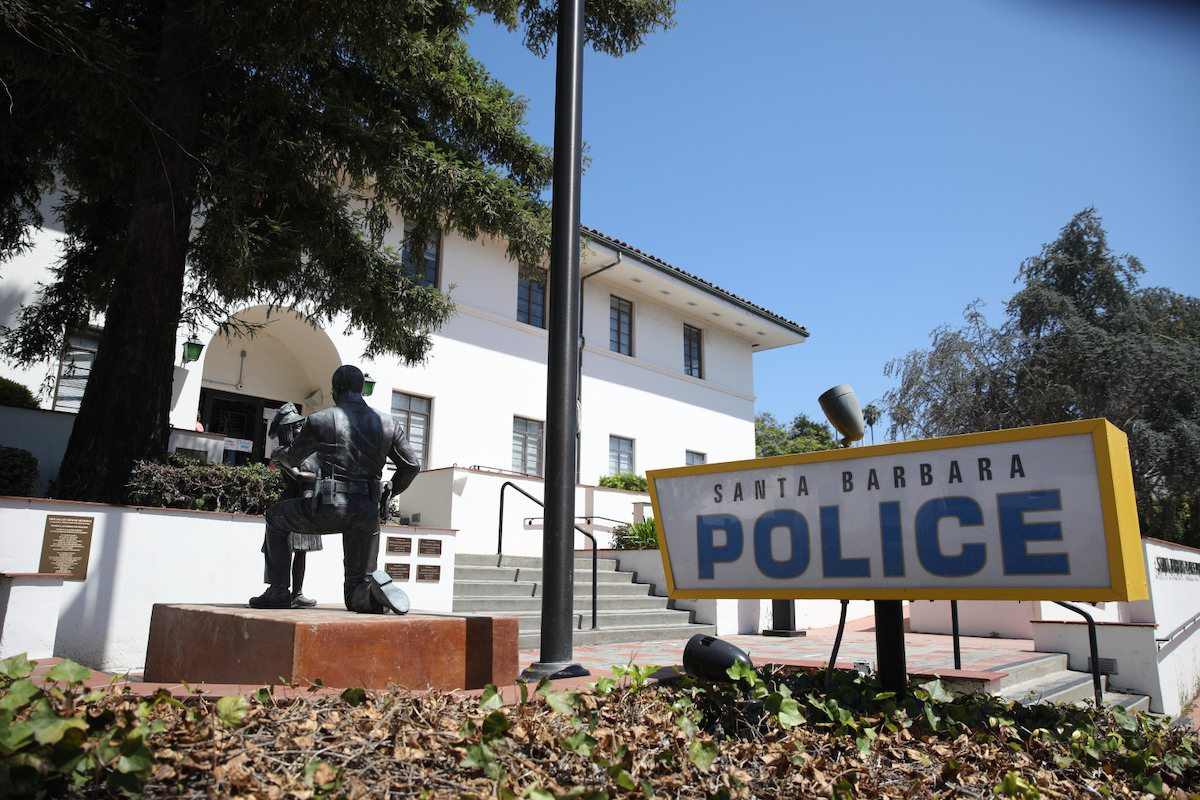Tight Split over Makeup of Santa Barbara’s Civilian Police Review Board
Community Formation Commission Votes to Exclude Current or Retired Law Enforcement Officers or Their Immediate Family

While Santa Barbara’s Community Formation Commission is coming much closer to the grand unveiling of what the proposed civilian police review board will look like, members of the commission crafting the new oversight board remain deeply split over what role law enforcement officials and their relatives could and should play on it. By a 6-to-5 vote last week, members of the Formation Commission voted to exclude from eligibility any current or retired law enforcement officers or any immediate family members of anyone in law enforcement.
This issue has been the subject of heated discussion among commissioners over the past two months. Those opposed to allowing law enforcement a seat have stressed the need for “independence,” arguing the commission must be as independent as possible from the agency over which it has oversight. On the flip side, supporters of allowing former law enforcement officers to serve stress the importance of “collaboration,” arguing that for the new board to build and repair relationships between the police department and the community, a collaborative relationship must exist. The vote would have been deadlocked 6-to-6 had commissioner Mary O’Gorman, who worked as former county supervisor Janet Wolf’s chief of staff, not resigned in early November 2021 after one such debate.
Under the proposed rules embraced by the Formation Commission vote, it’s doubtful O’Gorman — a former probation officer — would have been eligible to serve. It’s definitely the case that Formation Commissioner Louis Reynaud, a former police officer from Oakland, would not. Reynaud, who is Black, noted that he had last served as a police officer in 1990. If the hope was to improve collaboration and build trust, “I would say that’s a valuable experience.” Reynaud noted he was the last person selected for the Formation Commission, suggesting it was because of his police background. He said he’d kept his comments during deliberations to a minimum accordingly.
But other commissioners, such as Rich Sander, said it was vital to the community that the new oversight board be genuinely independent of the Police Department. Formation Chair Gabe Escobedo — now running for State Assembly — had expressed openness to limiting membership to retired law-enforcement officials and those who served outside of Santa Barbara County. That language, while tempting to some, was not enough to change the straw vote.
Sign up for Indy Today to receive fresh news from Independent.com, in your inbox, every morning.
The Formation Commission was appointed last summer in response to the local protests that emerged in the wake of George Floyd’s murder in 2020. Its charge was to design a police oversight board tailor-made to meet the specific needs of the Santa Barbara community. Members have had to meet virtually due to the pandemic, with little community involvement or engagement.
Only now are the final contours of the new oversight entity beginning to emerge. First, the Formation Commission is recommending an 11-member oversight board where members of the community can feel safe expressing their concerns about the conduct of individual Santa Barbara Police officers or the department as a whole. Beyond the new oversight board, the Formation Commission is recommending creating a Police Oversight Office and hiring a police oversight officer. This position would be empowered to conduct independent audits of the department — for such things as routine traffic stops — and to review the deployment of force.
Interim Police Chief Barney Melekian has expressed support for the concept of a police review board, saying they can build trust between the department and affected communities when done correctly. Melekian and others in the department have expressed concern, however, should such a body be animated by an anti-cop attitude. Speaking of the proposed eligibility requirements, Melekian said, “I do find this language problematic.”
If members of the Formation Commission were comfortable encouraging young people between the ages of 18 and 24 with “lived experience” either being homeless or being arrested or convicted of crimes to apply, he said, then the lived experience of someone with a law enforcement background would be of value, too. “I would ask you to reconsider this language,” he said. “It’s somewhat exclusionary.”
Last week’s vote may be the last word of a year-long process, but it’s still just the beginning. Once the final draft language is in place, it will be released to the public for review, comment, and reaction. A poll will be conducted to take the public’s temperature. Based on what they hear, members of the Formation Commission may choose to revise their proposal. Only after all that’s done will the results be forwarded to the City Council. And then, the whole process will likely start all over.
CORRECTION: Mary O’Gorman worked as former county supervisor Janet Wolf’s chief of staff not her administrative assistant, as appeared in an earlier version of this story.
Support the Santa Barbara Independent through a long-term or a single contribution.



